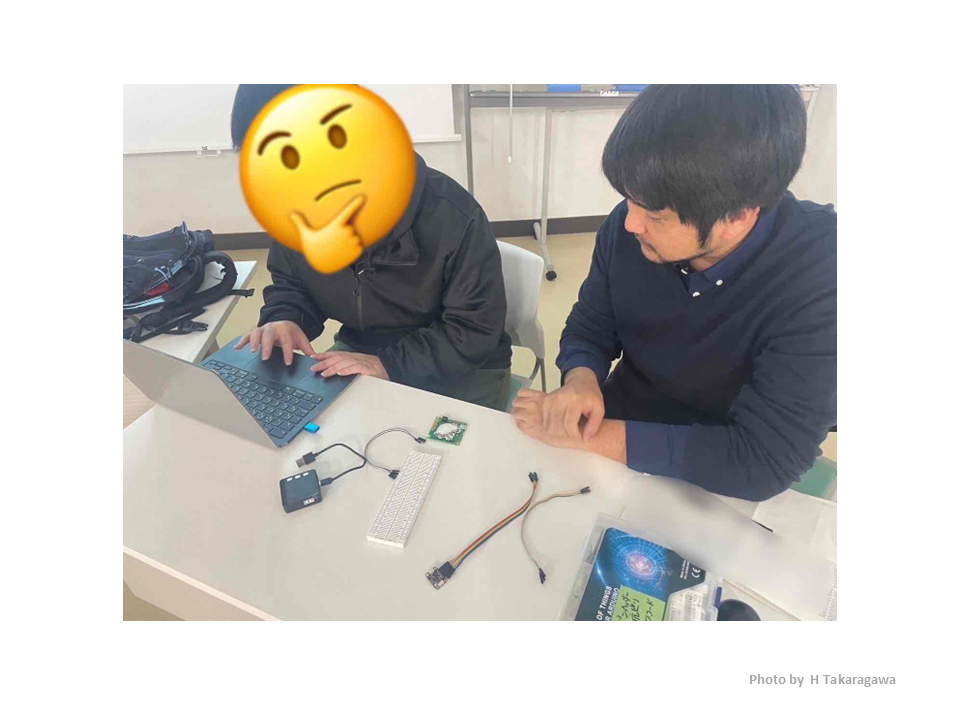Pick Up
1207. What to teach in an information-rich society (Takaragawa’s Newsletter vol. 4)

1207. What to teach in an information-rich society (Takaragawa’s Newsletter vol. 4)
JIRCAS does not have a laboratory system like a university, but it has a project system that brings together issues related to the target countries on the horizontal axis and seven specialized fields (rural development, social sciences, biological resources and utilization, production environment and livestock production, forestry, fisheries, and tropical agriculture research front) on the vertical axis. Each researcher engages in research within a matrix system where both axes intersect. In addition to different specialties, the target species are diverse, including cereals, tropical fruit trees, vegetables, forests, sugarcane, grasses, seaweeds, livestock, insects, soil animals, and microorganisms, as well as food-related researchers who study the processing of agricultural products, and social researchers who focus on humans and the environment. JIRCAS is one of the few research institutions in Japan that conducts research based on an interdisciplinary approach through the exchange of a diverse range of researchers.
In this context, JIRCAS is actively recruiting new young researchers, and is also making efforts to foster human resources in Japan and overseas who are expected to play an active role in international agricultural research in the future, including JIRCAS Fellows, trainees, and visiting lecturers. In this report, I gave a lecture as an outreach activity to university students in the Biosystems Engineering course at the request of the Department of Regional Agricultural Engineering, Faculty of Agriculture, University of the Ryukyus.
In the Biosystems Engineering course, students learn about post-harvest technology, agricultural machinery, agricultural information engineering and biomaterials engineering, using knowledge and methods from mathematical science and information technology, with the aim of developing high-quality, highly efficient agricultural production systems from food production to distribution and processing. As I am a specialist in plant production such as cultivation physiology rather than agricultural engineering, I explained the measurement engineering approach used in the field of cultivation physiology, with the main focus on observing plants. In this context, I showed the importance of the variability of data shown by plants, the spirit of questioning existing equipment, and the importance of making your own equipment, with specific examples.
At the end of the lecture, as an exercise, I asked the students to try to see if they could create programming code to control various environmental measurement sensors using a specified micro-computer. Surprisingly, almost all the students made full use of generative AI, inputting my questions as they were asked and getting answers. I was also impressed by the very smart way in which the students listened to the lecture documents on their tablets and carried out their assignments. However, although there were some smart students who successfully created code on an unspecified micro-computer, no one was able to create the correct code on the specified micro-computer by the end of the lecture time. This was a trick in my assignment, as I specified a microcontroller that is not very popular, so there was not enough information and the generative AI could not derive the correct code. We had to rewrite the code by trial and error, referring to the example code obtained from the generative AI and making use of other information on the internet. Today, we live in an information society, where we are inundated with all kinds of information, and where useful applications such as generative AI have been developed. In such an environment, what is important to solve the problems posed by society is the ability to select and discard information, the ability to write for searching, and the ability to practice and revise (trial and error). I hope that this lecture provided an opportunity for students to think about such matters.
Contributor: TAKARAGAWA Hiroo, Tropical Agriculture Research Front
